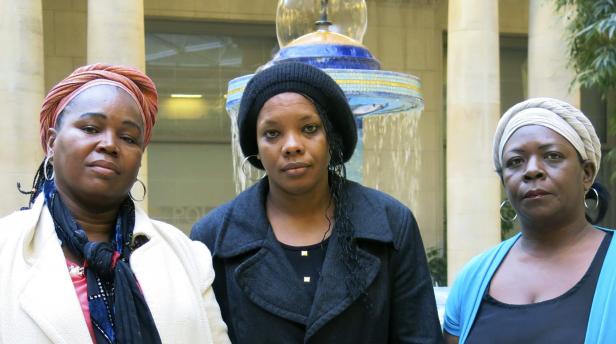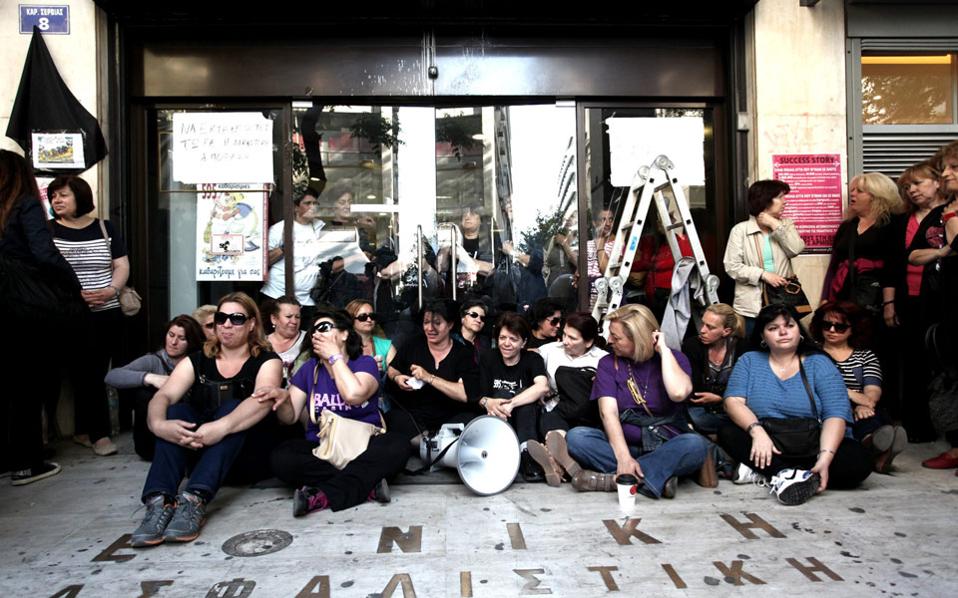
Making access to abortion more difficult is a way to change the nature of women’s lives. It also unsettles the social position of women in those countries that in the sixties and seventies, after a century or so of illegality, legalized access to contraception and to abortion.
In Texas, a recent court decision authorized HB2, a bill designed to make access to abortion more humiliating and difficult, even impossible for the most vulnerable women. Last week Democracy Now broadcast from San Antonio, “the last outpost for legal abortion in Texas,” in order to focus on this new attack on women’s lives. The shows featured Jeffrey Hons, CEO of Planned Parenthood in Texas, and Lindsay Rodriguez, President of the Lilith Fund, which provides financial support to women in Texas who cannot afford an abortion.
Responding to Senator Wendy Davis’ revelation in her new campaign memoir that she had an abortion, Hons explained, “A woman should be allowed all the privacy to have this healthcare and not have to reveal it to every one and then, at the same time…it’s as though when a woman will have the courage to share a story, that it humanizes it, and it makes everyone realize that these decisions are very complicated, very personal, very difficult…”
It was also very difficult also for a young woman in Pennsylvania to terminate an unwanted pregnancy, because services were too far and too expensive. Her mother went to the Internet and found a way to help her daughter. She purchased mifepristone (formerly called RU-486) and misoprostol pills, which was what she could afford. For that `crime’, the mother was sent to jail. She had no access to suitable services and yet was denounced by the hospital, condemned by the judicial system and pilloried by the media.
In Texas and other places where abortion is formally legal, abortion has remained taboo as if it were an unspeakable last result or an impossible choice for women. Women are meant to be ashamed because [a] they have violated the privacy of the household and [b] they are women seeking reproductive health. In recent years, safety and security rhetoric has led to the re-emergence of the argument that endangering the life of the mother justifies curtailing her right to control over her body.
On September 27, 2014, Sabine Lambert addressed these issues at the “Feminist Struggles and Reflections to Advance Society” forum in Paris. Lambert belongs to the collective group “We had an abortion, we’re fine, thank you” (nous avons avorté, nous allons bien, merci). The group formed to create spaces to liberate women from the politics of guilt and shame regarding their decisions by exchanging stories and insights with other women. Instead of leaving abortion in the private sphere, they present abortion as a possible occurrence in women’s lives that carries no particular shame or guilt. After all a woman spends more time avoiding pregnancy than being pregnant.
In France, abortion is free, a recognized as a right, and still relatively easy to access. Nevertheless, it is often described as a traumatizing event carrying terrible consequences for the mental well being of women. In recent years, these descriptions have become more prevalent. The idea that abortion should be averted by any means has prevailed, despite the fact that abortion has always existed and contraception will never be an absolute means of reproductive control.
In France and across Europe, the notion of post-abortive syndrome has surfaced. This so-called syndrome has no scientific support. Nevertheless, a well known professor of medicine wrote in a popular medical publication that scientific studies should not be necessary to prove that a woman who had an abortion is inclined to psychological distress and extreme suffering. In Texas, a Republican delegate candidate has argued that women who have undergone abortion are prone to drug abuse, alcoholism, and suicide. Both doctor and delegate are wrong.
Women who have gone through abortions know better. According to Sabine Lambert, we need to go beyond the right to control our body and recognize that our mind is also ours. On her group’s website many women have written that they felt ashamed for not feeling negative after their abortions. Describing their experiences, which were not always easy, the women say they do not regret anything. Many say that in their mind the result of a sexual encounter was not the fetus. Sabine suggested that the image of the monstrous woman underlies the stigmatization of abortion. The woman who had an abortion and feels fine commits a double transgression. First she refuses maternity, and second she’s ok. She deviates twice from the patriarchal feminine social norm.
Sabine’s group organized to demand a woman’s right to abort with head held high. The right to abort should not be limited to begging for the crumbs of tolerance or struggling for a loosening of the noose around the neck. There is no shame or guilt for the women in Texas, Pennsylvania or France. We should demand respect for their decision, as we should recognize their struggle as political, not private.
(Photo credit: IVG, je vais bien, merci!)





 This past session, Maryland passed anti-shackling bill
This past session, Maryland passed anti-shackling bill 

 The women cleaners of the Ministry of finance in Athens
The women cleaners of the Ministry of finance in Athens